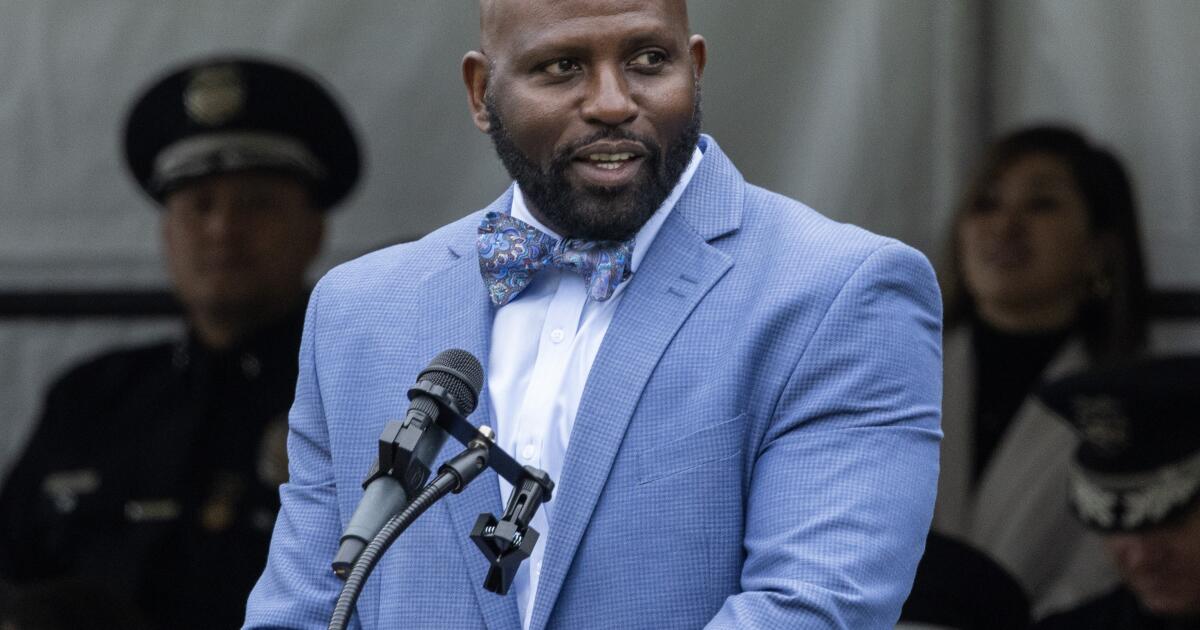A former deputy mayor of Los Angeles, Brian K. Williams, has recently made headlines following his sentencing for originating a fake bomb threat. This incident has raised significant discussions around mental health, accountability, and the responsibilities of public officials. Williams, who served under Mayor Karen Bass as the deputy mayor of public safety, was sentenced to a year of probation and required to perform 50 hours of community service.
In October 2022, Williams made a distressing call to the police, claiming to have received a bomb threat targeting City Hall. This call was later revealed to be entirely fabricated, allegedly stemming from the immense personal stress he was experiencing due to familial losses and an overwhelming sense of anxiety. During the court proceedings, he expressed that the year leading up to the incident was particularly harrowing, marked by the death of his mother and nephew, along with his brother’s cancer diagnosis.
In light of his mental health issues, Williams’ attorney reported that he underwent ten months of treatment for “undiagnosed mental health challenges.” This element of the case prompted both the prosecution and defense to argue for a non-custodial sentence. U.S. District Judge R. Gary Klausner noted, “There’s no question that your conduct was aberrational,” emphasizing the importance of understanding the mitigating circumstances that led to his actions.
The nature of Williams’ call was concerning not just for the immediate fear it incited, but also for the extensive resources it diverted from real emergencies. Prosecutors explained that Williams did not have any prior criminal history, which led to arguments for leniency in sentencing. The plea deal resulted in him admitting guilt to a single count related to threats involving fire and explosives.
This case highlights the intersection of mental health and public accountability. Critics argue that while understanding Williams’ mental struggles is crucial, it does not excuse his actions, which undermined public safety and trust in government officials. The fallout of his actions included an extensive FBI investigation, which further exemplified the serious legal ramifications of such threats.
The broader implications of this incident extend into discussions about the mental health of public officials. The stressors associated with high-stakes roles in government can take a significant toll, often leading to mental health crises. Williams’ case serves as a cautionary tale about the necessity for mental health support within workplaces, particularly those that carry heavy responsibilities. It raises the question of how such mental health challenges can be addressed proactively, offering insight into the supportive measures that can safeguard both public officials and the communities they serve.
There has also been a pronounced reaction from the Los Angeles community following this incident. Many constituents and officials expressed disbelief that such a respected figure would resort to fabricating a bomb threat, emphasizing the breach of public trust involved. The repercussions of this incident serve as a reminder of the tremendous expectations placed on public officials, and the need for accountability, even in light of personal struggles.
In summary, Brian K. Williams’ actions have reverberated through the halls of City Hall, stirring significant conversation on mental health, accountability, and the responsibilities of public officials. His case calls attention to not only the personal trauma that can lead to such misguided actions but also the need for immediate and responsive mental health interventions in high-pressure environments. As he embarks on a path to rehabilitation through probation and community service, it remains a crucial juncture for discussions around mental health stigma and the importance of support systems in public service roles.
Moving forward, it will be vital for municipalities to ensure that their staff are not only effective in their roles but also supported in terms of mental wellness. Partnerships with mental health professionals and open lines of communication can establish a healthier environment, reducing the likelihood of future incidents similar to that of Williams. The lessons gleaned from this case serve as important reminders for communities everywhere to prioritize both mental health and the integrity of public service.
Source link










